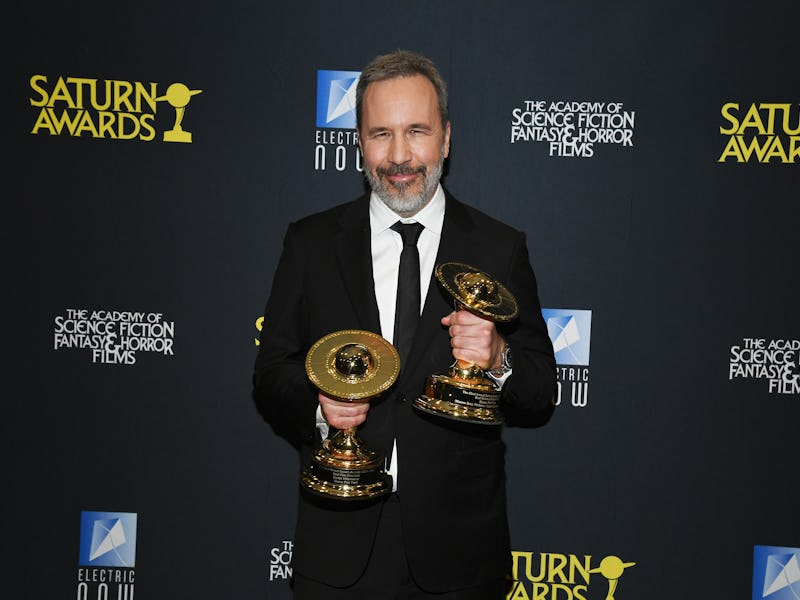Denis Villeneuve Says Dune 3 Will Stay Faithful To The Book
“It’s not that different.”

Although Dune: Part Two ended on a different note than the last pages of the original 1965 Frank Herbert novel, director Denis Villeneuve says that the tone and meaning of his ending are fairly similar to Herbert’s intent. Further, he suggests that any radical theories fans might have that his adaptation will deviate from the second book, Dune Messiah, are unfounded. In fact, Villeneuve has suggested we should expect Dune 3 to be just as faithful to Herbert’s text, and in line with his approach to the first two Dune movies.
During the 52nd Saturn Awards, Villeneuve took home two trophies: one for Best Science Fiction Film and another for Best Film Direction. While it feels unlikely that the other Academy Awards will give Dune: Part Two Best Picture, with the Academy of Science Fiction, Fantasy and Horror Films, Villeneuve is clearly royalty. And, during the festivities, Villeneuve found time to chat with journalists, which led to some real talk about Dune 3.
In an interview roundtable uploaded by Cherry the Geek, Villeneuve answers various questions by different journalists at the Saturn Awards. At one point, someone directly asks Villeneuve how the ending of Dune: Part Two will impact the writing of Dune 3, and if the changes made to the book will lead to further changes.
“It’s not that different,” Villeneuve insists, referring to the ending of Dune: Part Two in which Chani (Zendaya) is furious with Paul (Timothée Chalamet) and rides off on a sandworm on her own. “At the end of the book, Chani’s heart is broken, and it’s the beginning of the holy war.”
This is broadly true, though, in the novel, you could argue that you have to dig for the heartbroken aspect of Chani. Yes, the book famously (or infamously) ends with Lady Jessica comforting Chani, and telling her that Princess Irulan is not Paul’s true love, saying: “While we, Chani, we who carry the name of concubine — history will call us wives.” Obviously, this line doesn’t appear in the movie, and Chani’s love for Paul is totally in tumult in the film, which is less clear in the book.
But what Villeneuve is revealing in this interview is interesting because it indicates that he doesn’t view the ending of Dune: Part Two as a massive departure from the Herbert text, but that the changes to Chani’s character in the film are more of a clarifying force than anything else. As he told Inverse back in 2024, “When I did the adaptation, I tried to be faithful to Frank Herbert. And [to do that] I changed the nature of Chani’s character to create a perspective that I hope Frank Herbert would agree with in order to achieve his goal.”
While changing a book’s text for film in order to achieve the original author’s goal sounds counterintuitive, what Villeneuve means is that he, like many other fans over the years, worried that the cautionary tale aspect of the original book was too easily misinterpreted and, therefore, certain thematic elements that Herbert intended needed to be made clearer. In a sense, Villeneuve’s approach to adapting Herbert is to focus on conveying intended meaning over exact fidelity to events.
This flashforward in Dune: Part One felt closer to events in Messiah than anything we got in Part Two.
So, when asked at the Saturns if he’ll mess with the chronology and give us a movie set between the events of Dune and Dune Messiah, the answer appears to be no. “That’s where we left it,” Villeneuve said on the subject of the ending of the first book matching with the ending of Dune: Part Two. “In a way, it’s [Dune 3] quite similar. The next project is in the works and I was very inspired.”
Villeneuve also mentioned that though he had originally intended on taking a longer break, he felt compelled to return to Arrakis sooner than he thought and “finish this story.” Whether or not his version of Dune 3 will feel as faithful as he thinks it is remains to be seen, and, like all things Dune, will remain up for interpretation until the sands of time run out.